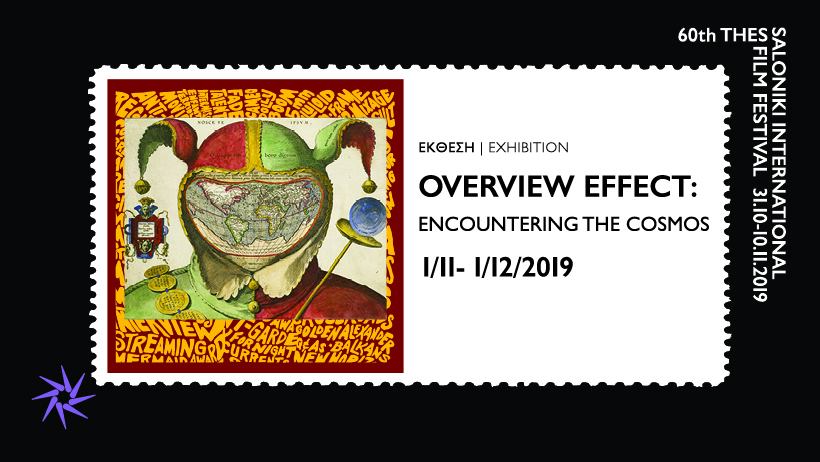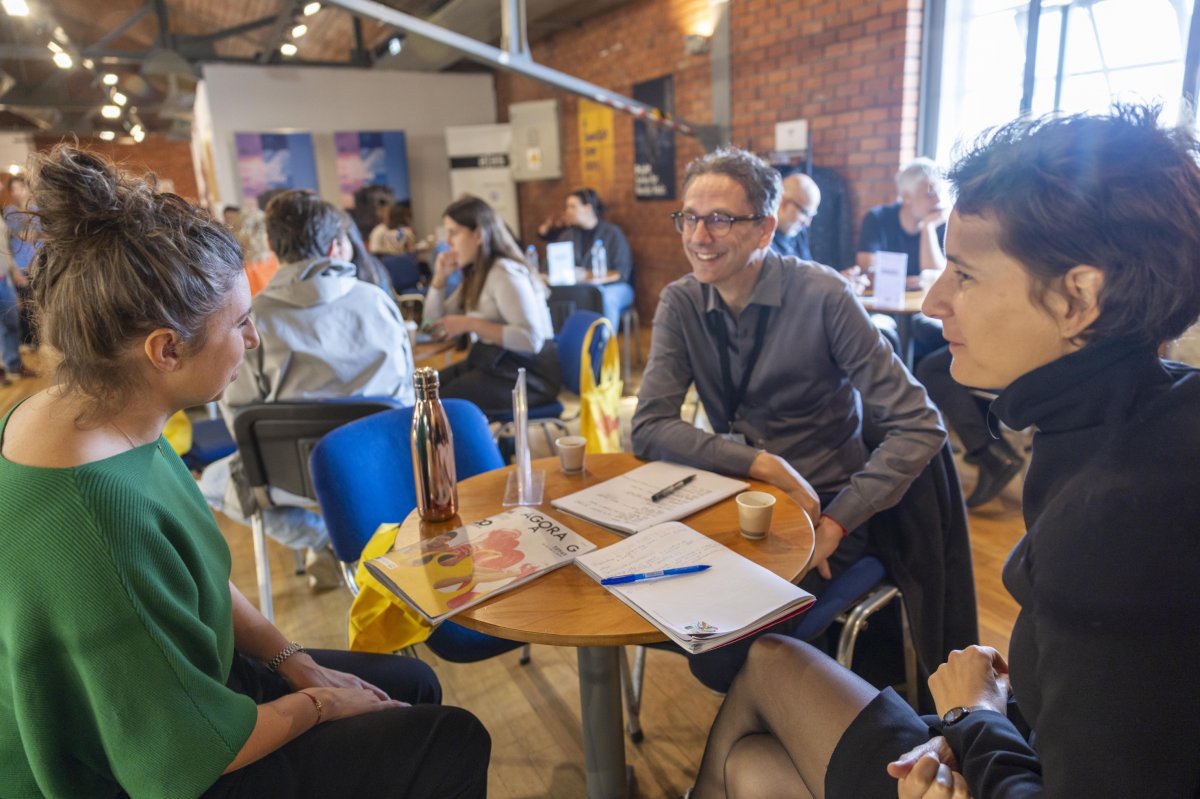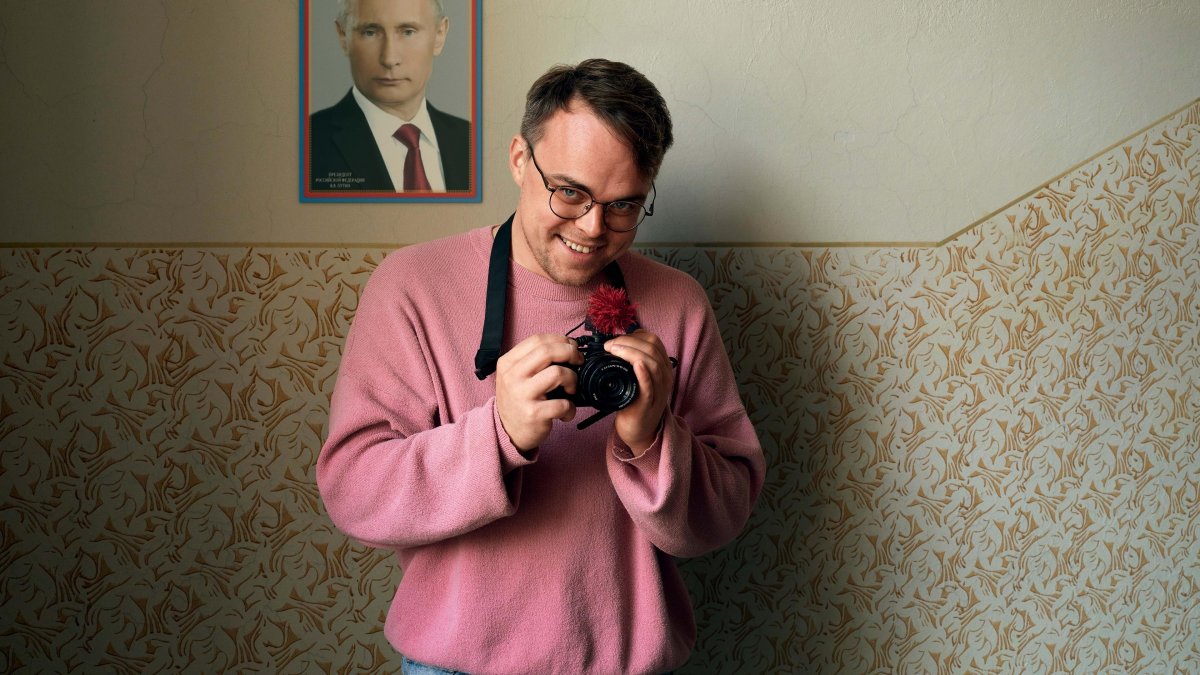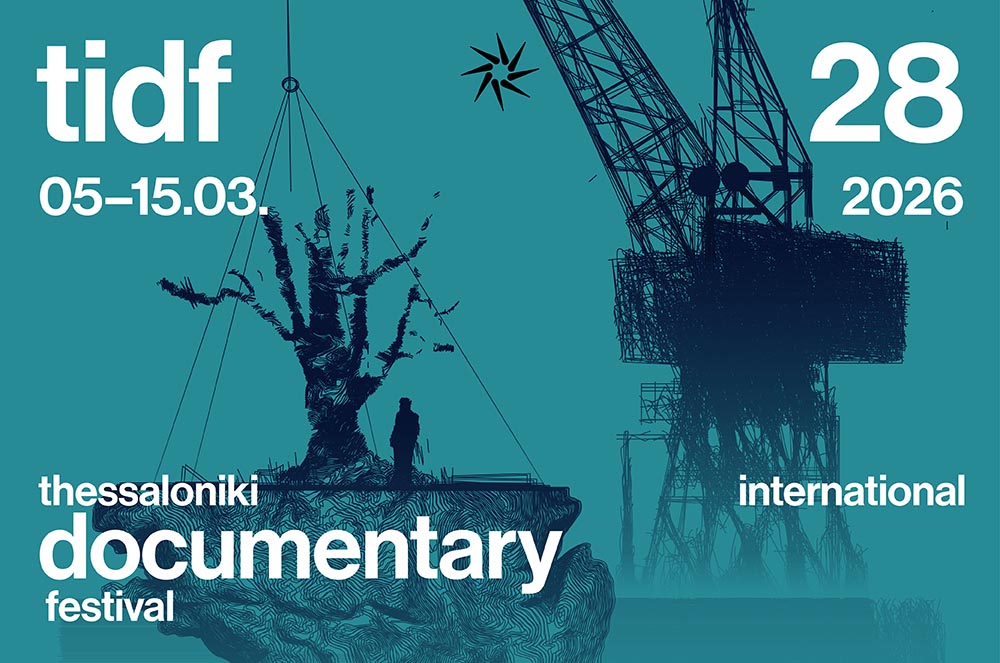The 14 films of the International Competition section of the anniversary 60th Thessaloniki International Film Festival inspired the exhibition “Overview Effect - Encountering the Cosmos”. The opening took place on Saturday, November 1st, 2019, at MOMus – Experimental Center for the Arts (Warehouse B1 – Thessaloniki Pier).
Media / Press
For more information please contact Press and Communication Department.
Opening of the exhibition “The unknown artist Nikos Koundouros”
www.filmfestival.gr
The 60th Thessaloniki International Film Festival hosts a large exhibition dedicated to the pictorial work of Nikos Koundouros. Through the paintings of the iconic director (with a considerable part presented for the first time in public), the exhibition showcases the Greek director’s visual universe. The exhibition also includes oil paintings, sketches, costumes, masks, handwritten letters, diaries, notes – including his favorite self-portrait palette.
Joanna Hogg press conference
www.filmfestival.gr
The 60th Thessaloniki International Film Festival welcomed the British director Joanna Hogg, hosting an honorary tribute to her work; the creator – a pioneer of a new social realism wave – gave a press conference on Saturday, November 2, 2019, at the Photography Museum of Thessaloniki.
Press Conference for the European Parliament LUX prize
www.filmfestival.gr
On the occasion of the screening of the three finalist films for the LUX prize in the 60th Thessaloniki International Film Festival, bestowed annually by the European Parliament, a press conference took place on Friday, November the 1st, in Warehouse C.
Opening Ceremony: A celebration with the gaze directed to the past and future of TIFF
www.filmfestival.gr
In a festive mood and with two special presenters, Daria and Sotiris, the heroes of the “Festival” comic book, the opening ceremony for the anniversary 60th Thessaloniki International Film Festival took place on Thursday, October the 31st, in a packed Olympion.




















